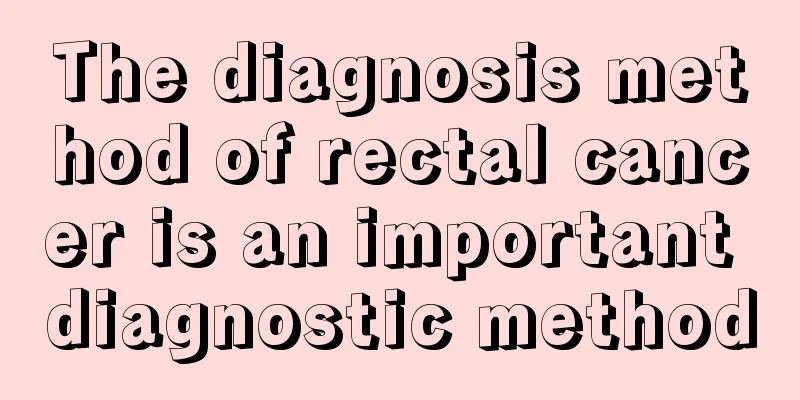What are the causes of rectal cancer

|
The occurrence of colorectal cancer is closely related to genetic factors, environmental influences, unhealthy eating habits, chronic intestinal diseases, etc. The combined effect of multiple factors may induce the formation of colorectal cancer. Genetics is an important cause of rectal cancer, especially for people with hereditary non-polyposis colorectal cancer (HNPCC) or familial adenomatous polyposis (FAP) in their family, the risk of cancer is significantly increased. Environmental factors should not be ignored. Western diets with high fat, high protein and low dietary fiber will increase the accumulation of intestinal carcinogens. Frequent consumption of pickled and grilled foods or long-term alcohol and smoking may also stimulate intestinal cells to become cancerous. From a physiological point of view, obesity, lack of exercise and decreased immunity will increase the probability of cancer. Certain pathological factors such as chronic intestinal inflammation such as ulcerative colitis or Crohn's disease may also evolve into cancer. In addition, the retention of intestinal contents caused by long-term constipation may cause toxins in the feces to irritate the intestinal wall, increasing the risk of rectal cancer. Genetics is an important cause of rectal cancer, especially for people with hereditary non-polyposis colorectal cancer (HNPCC) or familial adenomatous polyposis (FAP) in their family, the risk of cancer is significantly increased. Environmental factors should not be ignored. Western diets with high fat, high protein and low dietary fiber will increase the accumulation of intestinal carcinogens. Frequent consumption of pickled and grilled foods or long-term alcohol and smoking may also stimulate intestinal cells to become cancerous. From a physiological point of view, obesity, lack of exercise and decreased immunity will increase the probability of cancer. Certain pathological factors such as chronic intestinal inflammation such as ulcerative colitis or Crohn's disease may also evolve into cancer. In addition, the retention of intestinal contents caused by long-term constipation may cause toxins in the feces to irritate the intestinal wall, increasing the risk of rectal cancer. To prevent colorectal cancer, you should pay attention to your family history and do regular screening, especially colonoscopy. Improving your diet, consuming more fresh vegetables and fruits rich in dietary fiber, and reducing the intake of red meat and processed meat products can help reduce the risk of cancer. Developing good living habits, including exercising more, maintaining a healthy weight, and quitting smoking and drinking, can also effectively reduce the risk of disease. For patients with chronic intestinal diseases, following the doctor's advice on standardized treatment and regularly monitoring the health of the intestine can help prevent cancer. |
<<: Can I eat sea cucumber after gastric cancer surgery
>>: Can I take Chinese medicine during chemotherapy for rectal cancer?
Recommend
What are the early symptoms of liver cancer? 6 early symptoms of liver cancer that you should know
1. Central necrosis of cold-heat type liver cance...
How to preserve crabs if you can't finish them
Many people like to eat crabs and buy a lot of cr...
Will you get fat if you eat breakfast and then go to bed?
As more and more people are getting fat, many peo...
What are the methods for treating skin cancer?
Skin cancer refers to a malignant tumor that occu...
What to do if the lens of glasses is damaged
Resin lenses are the most commonly used lenses in...
How to check obesity?
With the development of the economy, more and mor...
Indications and contraindications for limb-salvage surgery for bone cancer
The continuous maturity of chemotherapy has promo...
What to do if laser mole removal leaves scars
Laser mole removal is a relatively advanced metho...
How to treat patients with lung cancer in the late stage? Four common treatment methods for lung cancer in the late stage
It is difficult to cure lung cancer in a short pe...
What are the symptoms of upper body heat and lower body cold
Upper body heat and lower body cold is a physical...
Can you die from skin cancer in summer?
Will I die if I get skin cancer in summer? Summer...
Vaginal douching can improve the efficacy of radiotherapy for cervical cancer
Vaginal douching has a synergistic effect on radi...
Cervical cancer folk remedies and their usage and dosage
I have had cervical cancer for more than a year. ...
What's the matter with the bulge behind the spine and neck
We will find in life that many people have a bulg...
What are the complications after laparoscopic gastrectomy? Pay attention to these
Complications after laparoscopic gastrectomy incl...









